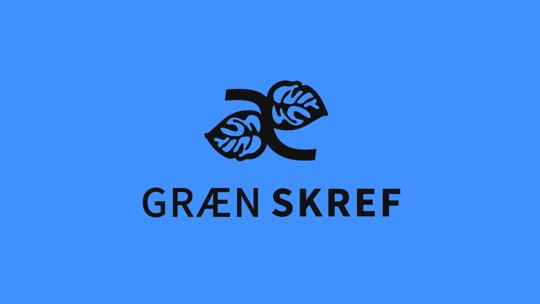Environmental and Climate Policy
Purpose and vision
The Environmental and Climate Policy and its implementation form part of the ISIPO’s day-to-day activities. By reducing its impact on the environment and highlighting its internal environmental activities, the Intellectual Property Office is helping to build a better society. The ISIPO focuses on sustainable development and protecting the environment in all its operations. This means that the ISIPO is making every effort to fulfill the demands of our modern age without reducing the potential for future generations to meet their own needs. This policy takes into account Iceland’s obligations under the Paris Agreement and the declared intention of the Icelandic authorities to reduce greenhouse gas emissions and achieve carbon neutrality. The Intellectual Property Office wishes to play its part in achieving the objectives of the Paris Agreement and make an active contribution to the fight against climate change.
Scope and responsibility
The Environmental and Climate Policy applies to all ISIPO activities, facilities and operations, including maintenance, procurement, use of resources and chemicals and recycling and processing waste. The policy also extends to the commuting habits of ISIPO staff, as well as education and the promotion of environmental issues. The Director General is responsible for implementing the policy. All the staff must comply with the policy and be guided by it in the course of their work. The management team reviews the Environmental and Climate Policy on a regular basis.
Objectives
The ISIPO’s operations will be conducted in accordance with environmental protection and sustainable development and will keep carbon emissions, resource use and the impact on the environment to a minimum. The ISIPO will take gradual steps, up to the year 2030, to reduce its greenhouse gas emissions per person year by 40% compared to 2019. The ISIPO will focus primarily on reducing greenhouse gas emissions in its operations while carbon offsetting all remaining emissions through the acquisition of certified carbon credits from 2020 onwards.
Actions
Starting in 2020, the ISIPO will reduce carbon emissions and negative environmental effects relating to the following factors:
Transport
|
Actions: |
|
Employees must make every effort to choose environmentally friendly modes of transport when travelling on behalf of the ISIPO, for instance by requesting environmentally friendly taxis, sharing taxis and walking when possible. |
|
The ISIPO encourages staff to opt for remote meetings when circumstances permit. |
|
Staff can enter into a transport agreement which rewards employees who commit to using environmentally friendly forms of transport for their commute. |
|
Criteria: |
|
Carbon emissions resulting from employee car travel. |
|
Carbon emissions resulting from employee air travel. |
|
Number of transport agreements. |
Waste
|
Actions: |
|
Sorting and disposing of waste according to the Green Steps guidelines and the service company’s sorting system. |
|
The use of paper should be steadily reduced, including by printing on both sides of the sheets and taking care not to print or photocopy unnecessarily. |
|
Promotional material is only published in electronic format. |
|
Balloons and plastic products will not be used to promote the ISIPO. |
|
The ISIPO keeps the use of disposable dinnerware and packaging to a minimum. |
|
Criteria: |
|
Amount of waste per full-time equivalent unit. |
|
Carbon emissions caused by waste. |
|
Recycling rate. |
Resource use
|
Actions: |
|
Hot water will be used sparingly, e.g. by not running taps unnecessarily. |
|
It is important to avoid using electricity unnecessarily, e.g. by switching off electrical appliances at the end of the working day or when they do not need to be turned on. |
|
Criteria: |
|
Electricity – kWh per full-time equivalent unit, kWh per square metre. |
|
Hot water – cubic metre of water per square metre, cubic metre of water per full-time equivalent unit. |
|
Carbon emissions resulting from electricity. |
Use of chemicals
|
Actions: |
|
All cleaning products used at the ISIPO will carry an accepted eco-label (type 1). |
|
The cleaning service will be certified with an accepted eco-label (type 1). |
|
Chemicals and chemical products are used sparingly, e.g. when washing dishes and cleaning. |
|
Criteria: |
|
The percentage of environmentally certified cleaning products purchased by the office. |
|
The percentage of environmentally certified cleaning services purchased by the office. |
Procurement
|
Actions: |
|
In the procurement process, environmental concerns will be considered to be as important as cost and quality. If products or services are otherwise comparable, the option considered least harmful to the environment should be chosen. |
|
Eco-labelled products should be selected in accordance with the government’s sustainable procurement policy and Central Public Procurement’s framework agreements. |
|
All IT and office equipment must carry the appropriate environmental and energy-saving labels. |
|
Criteria: |
|
Sustainable procurement. |
Follow-up
The ISIPO’s Environmental and Climate Policy undergoes an annual management review. Targets are updated taking into account the year-on-year trends reflected in green accounting. Information on the effectiveness of actions is shared with staff and on the ISIPO website.
The Icelandic Intellectual Property Office’s key environmental and climate objectives for 2021-2023
The first stage of the ISIPO’s Environmental and Climate Policy covers the years 2021-2023. An action plan including measurable objectives has been developed to support the policy. These are the main environmental and climate objectives for 2021-2023:
- The ISIPO implements all five Green Steps.
- The ISIPO maintains an overview of key “green” operational figures and records and monitors the results.
- ISIPO staff takes part in environmental training at least twice a year.
- The ISIPO offsets its carbon emissions in a responsible manner.
- It shares knowledge with the business community and contributes to positive environmental developments.
- Continuous monitoring of the ISIPO’s carbon emission targets.
